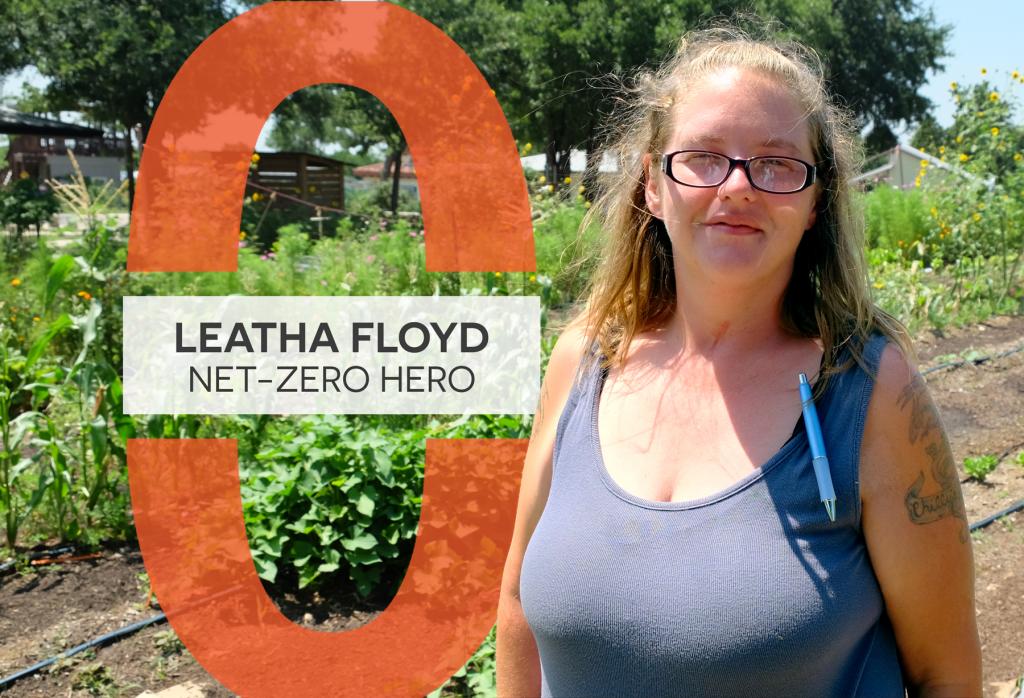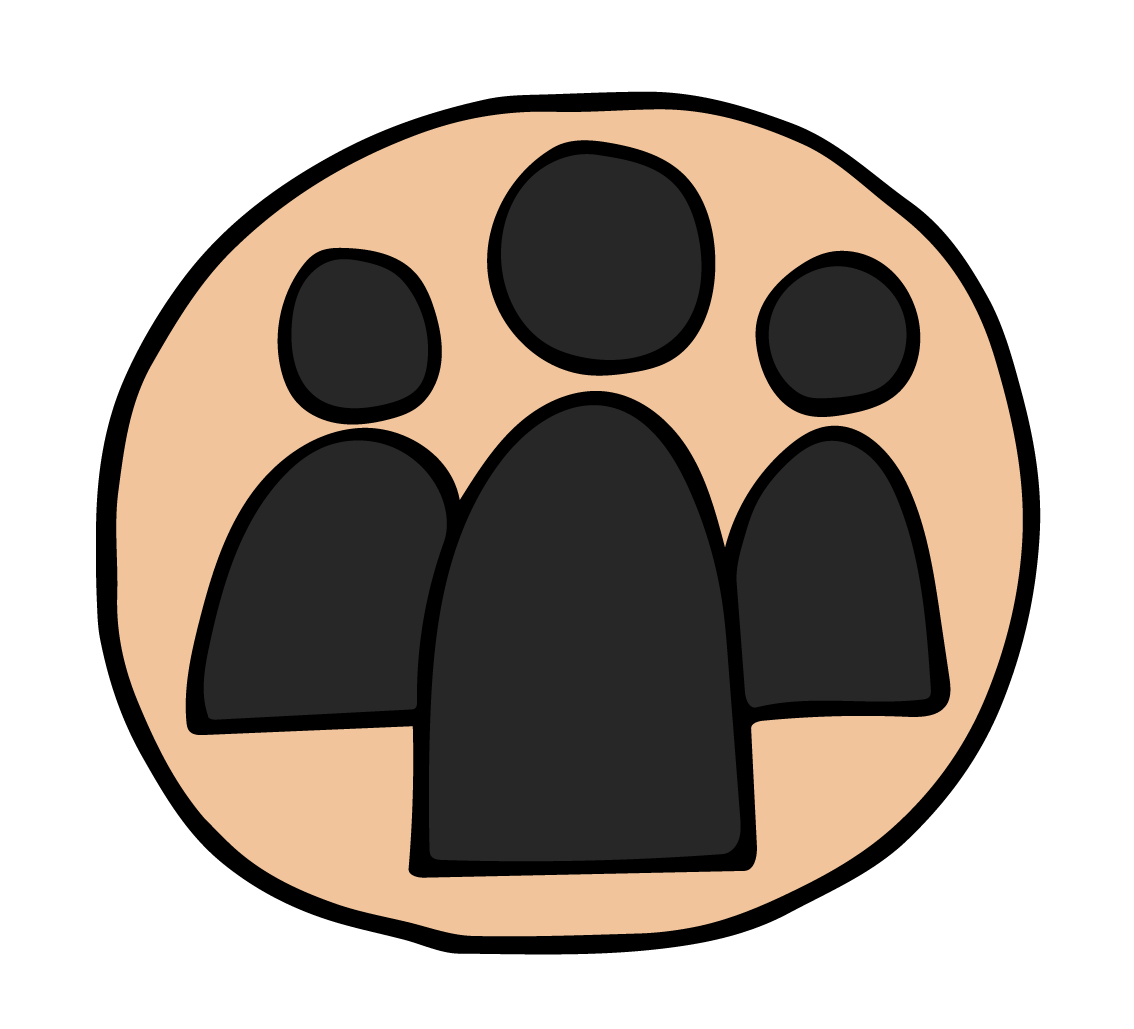
About The Author
This post is sponsored & written by The Office of Sustainability, the city department that is working toward net-zero greenhouse gas emissions, a healthy & just local food system, and climate resiliency.
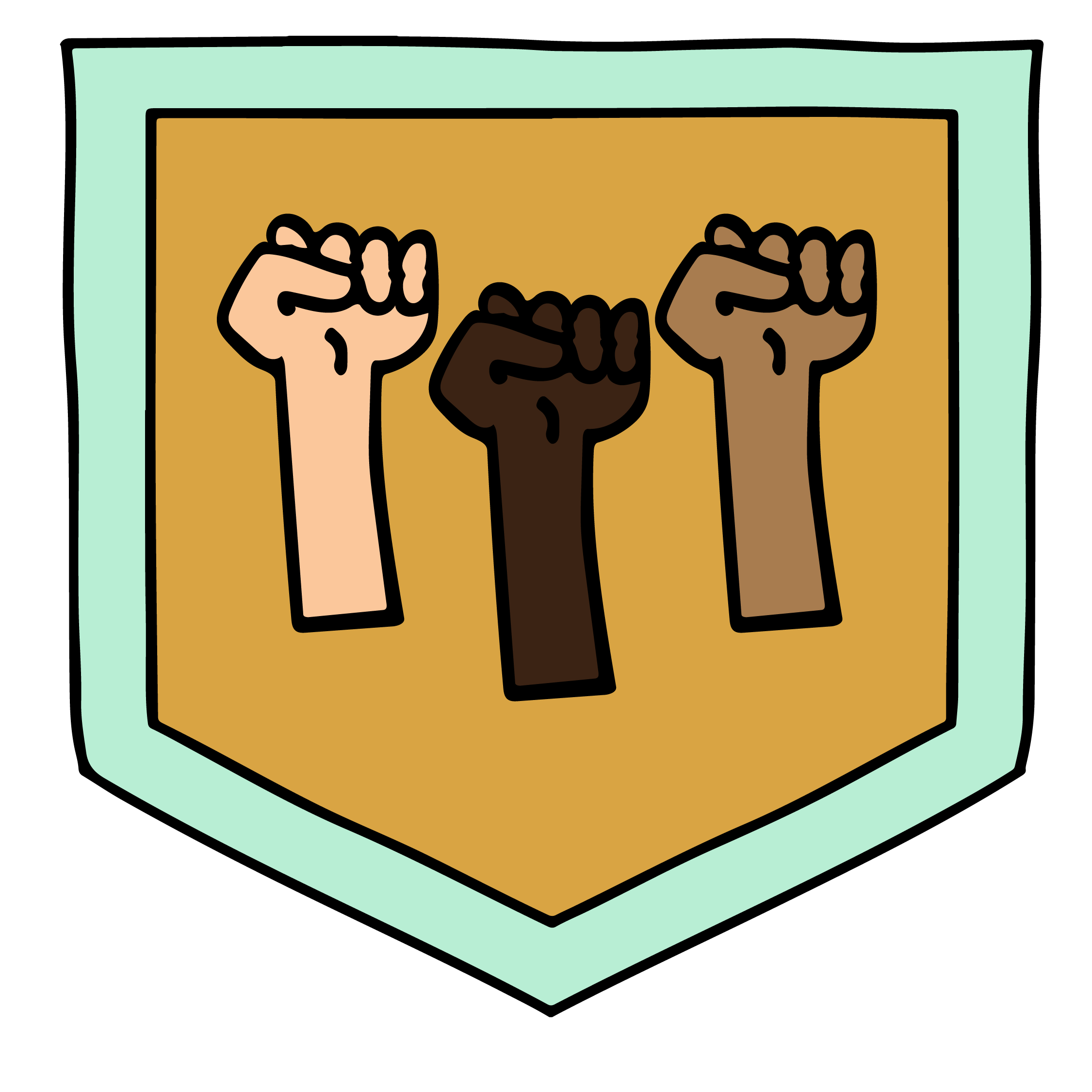
Action Box
If you have ideas to support a more just and sustainable food system in Austin, consider applying for a Food Justice Mini Grant. Grants of up to $3,000 are available to support communities in their efforts to grow, sell, and eat healthy food. Click the badge above to apply.
This post is sponsored by the City of Austin Office of Sustainability. All Austin Common sponsors are screened by The Austin Common team to ensure they’re doing good for their employees, customers, our community, and the planet.
At the 51-acre Community First! Village, a development of Mobile Loaves & Fishes, sustainability is woven into the fabric of daily life. From enjoying free, hyper-local food to engaging in opportunities for dignified and sustainable income, neighbors in Community First! Village live firmly at the intersection of the three pillars of sustainable living: people, planet, and prosperity.
Our newest Net-Zero Hero, Leatha Floyd, is one of these neighbors. In 2018, Leatha began volunteering at the village. At the time, she was living out of her car. Leatha’s dad was a resident of Community First! Village and encouraged her to come explore the neighborhood. By early 2019, Leatha was also calling Community First! Village home and, in 2021, was hired on as a staff member with Mobile Loaves & Fishes as part of their 10-acre Genesis Gardens program.
Today, Leatha lives at Community First! Village with her two-year-old daughter and works as the Genesis Garden Coordinator. In this role, she oversees a team of fellow residents and volunteers in tending Community First! Village’s organic fruit and vegetable gardens, caring for the chickens, ducks, and bees in the pastures, and supporting the Farmers Market held at the village every Saturday.
We met with Leatha at Genesis Gardens to learn more about her journey, work, and life at Community First! Village.
What inspired you to take action?
I found out about Community First! Village from my father, who spent time in prison and then spent ten years on the streets. Alan Graham [Founder of Mobile Loaves & Fishes] saw him on the side of the street one day, came up to him, and said, “You look like somebody that really could use some help. Want some help?” Alan got my dad into a halfway house and then transitioned him to Community First! Village. My dad was volunteering out here before the first house was ever built — he got to be part of the groundbreaking.
My dad found out I was living out of my car and told me about living here. When I first came down to the property, it was for a house blessing. I didn’t know anybody except my dad and my dad’s friend, Pops. When I stepped foot on this property, I felt God for the first time in a very long time. He’s here, and this is an awesome place.
Alan gives a speech about how a house is not the cure for homelessness — community is the cure for homelessness. It’s true. I’ve seen a lot of people, including myself, that couldn’t stay still, jumping from one place to another. They come here and they work here. They put their blood, sweat, tears, and everything into this place. As long as we do our part, we have a home and a family as long as we need it.
Me and my dad are the only ones still alive in my family. To be able to have somebody or a group of people to rely on and be there for you if you need something is nice. It’s really nice.
How did you do it?
I’ve always liked working in gardens. I always had a garden and used to help in my grandmother’s garden every year. My dad introduced me to working here in the Genesis Gardens. He came in one day and said, “Get off that couch. Let’s go!” I worked in the gardens just two days a week for a while, and then three days a week, and then four. Then, I started working with the animals in the pastures and it felt really natural to me.
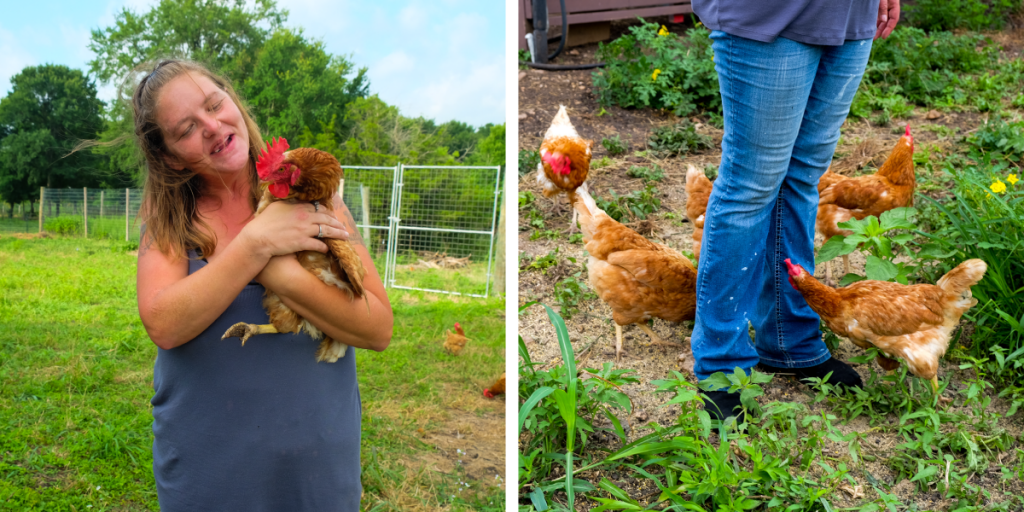
My boss at that time, the gardens coordinator, came out one day and told us she was leaving. She let us know that her job was going to be open and anyone could apply for it.
After her announcement, I said to the Genesis Gardens director, “I hope we like the new boss. I don’t want anyone coming in where I know more than them.” I was encouraged to apply for the job, so I did. There were a bunch of interviews. Apparently they all liked me! It all just fell into place. Things just fall into place here for some reason.
I work the gardens and the pasture. Our team is responsible for everything out here: the animals, vegetables, harvesting. I pretty much go where I’m needed. I’m pretty flexible — that’s the glory of being able to work where you live. It’s a blessing. With the things I’ve done in my past, I never thought that I deserved any good. But this place, they really make you realize that you do deserve good, regardless of what you’ve done in your past. It feels so good to be with the animals, in the garden, and able to provide for our farmers market.
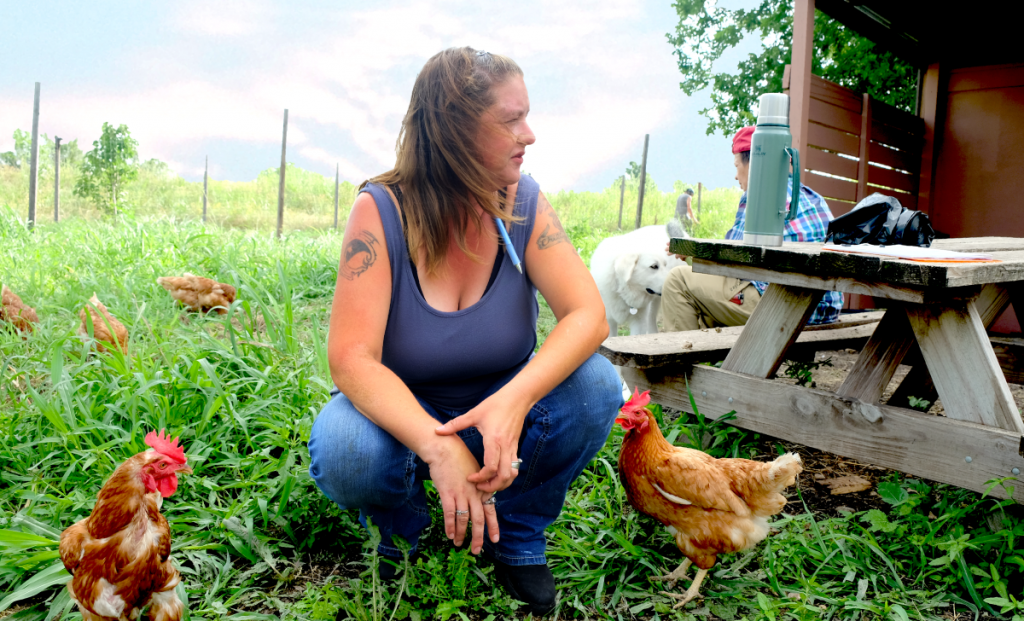
What’s been most rewarding about getting involved in this way?
To be able to get out there and put my hands in the ground, I get a personal feeling of being able to communicate with God. To be able to go spend time with our chickens and our animals, to get dirty and sweaty, to be one with the earth that God put here for us.
I get to work with some really awesome people. We have our drama, we have our ups and downs, we have our loopy loops and turnarounds, but we’re all family here. That’s the biggest thing for me.
It’s so tranquil. I have the best job in the world. It’s my favorite job. Most people in their lifetime don’t ever get to do a job that they love. But I actually have a job that I love. This is my dream job.
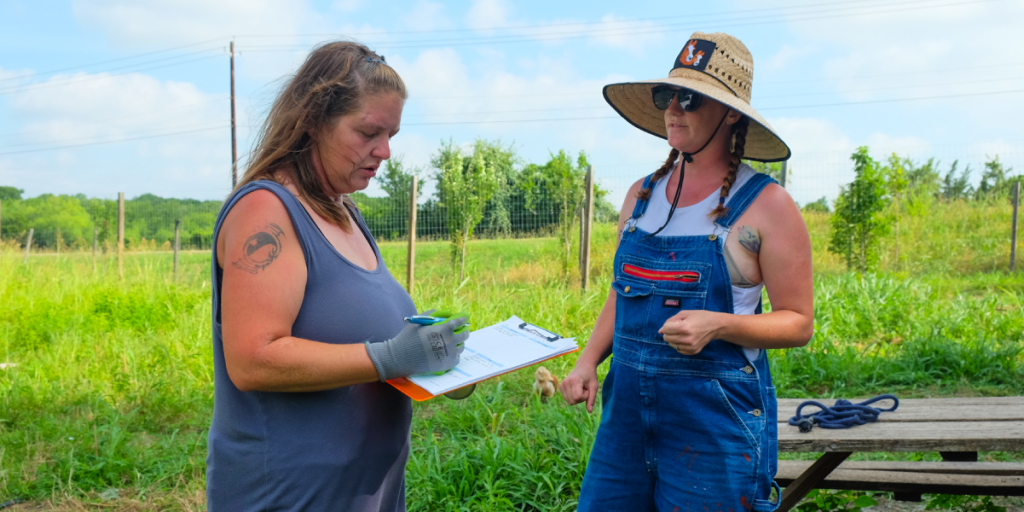
What’s been the toughest part?
The toughest part has been building close connections, because you really come to care for and love people here. Watching people relapse or do something that’s not good for them and knowing that there’s nothing you can do that will make the situation change, it’s hard.
When you care for somebody and they lose their home because they don’t want to provide for themselves, that’s the hardest thing.
People come here with different problems, but there is always somebody here to help. It’s a give-and-take relationship. Many people look at homeless people and think all they want is money or that they are selfish. That’s the last thing in the world that homeless people are.
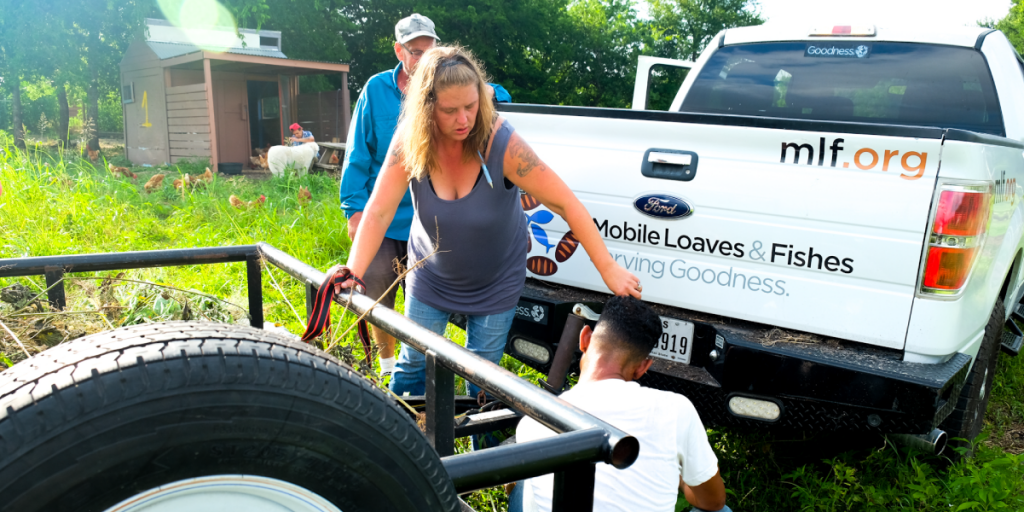
The Mobile Loaves & Fishes model is built on providing a dignified income to residents. Can you talk a little bit about what that means for you?
It is a huge relief. There are a lot of people here that have a hard time finding a job, let alone having decent things to wear for a good job. Our residents who work in the gardens work short shifts that they couldn’t do elsewhere. It’s good pay and they don’t have to go far. They don’t have to be judged for who they are, what they’ve done in their life, or what they’ve been through. None of us are judged for that here.
It’s good to come to work and not be thinking, ‘I’m better than you,’ or, ‘you’re better than me.’ Here, we’re all the same. We’ve all been through the same steps. It’s comfortable and reliable. There’s always a job for you here to help you pay your rent and there is always somebody willing to help you find a position.
There is a lot of support. I think that’s what a lot of us need at times — the support and the love.
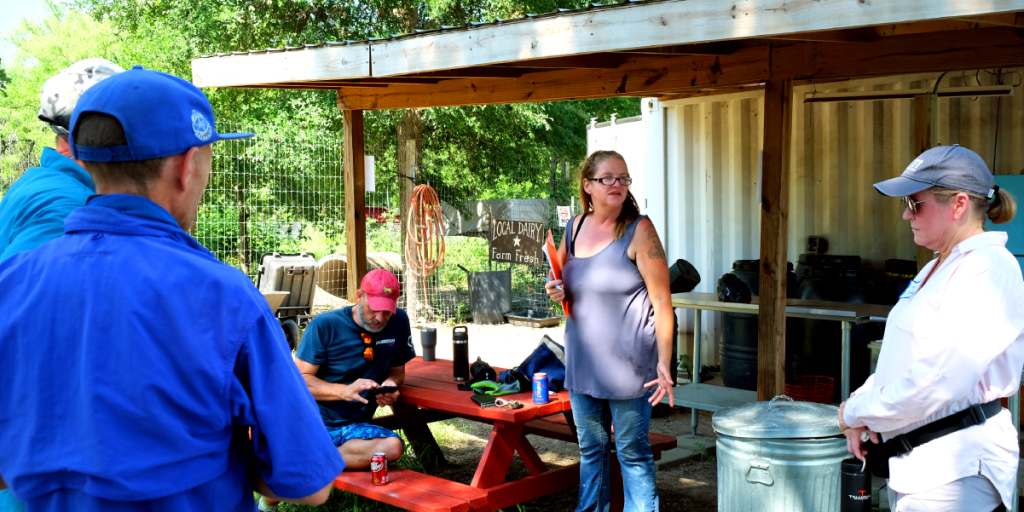
How does it feel to be able to provide free and healthy food to your neighbors?
It makes me feel overjoyed. That’s what I get up for everyday: to provide something that’s healthy and something that’s good for them. A lot of people aren’t able to go buy vegetables. They’ve gotten super pricey at the market or grocery store. Our residents are able to just come and get what they want. My being a part of that — of being able to give back — is so good.
When they come to the market, they’re able to go home and make a salad, or eat a cucumber, a watermelon, or a peach — it does my heart really good. That’s the reason why I’m here.
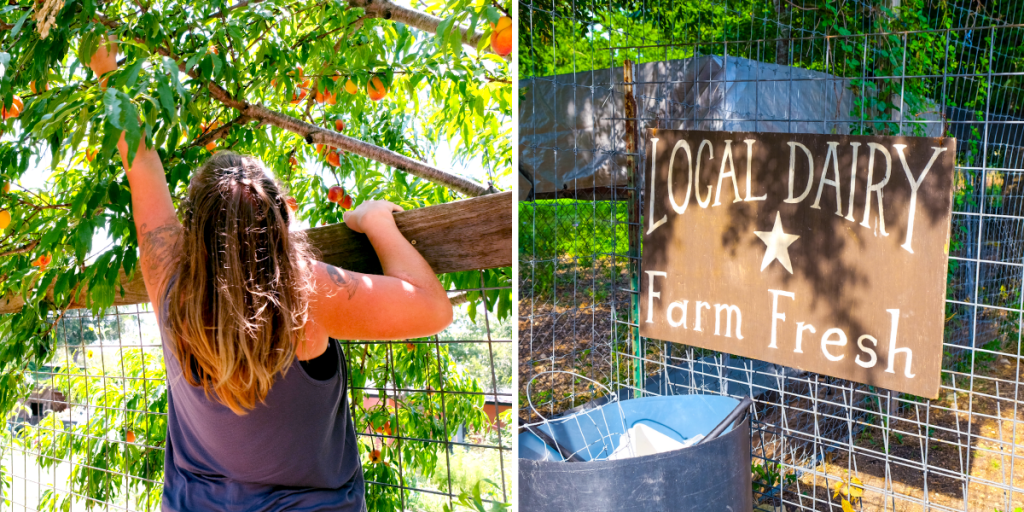
What advice do you have for others?
If you have access to land, you’ll never go hungry — there’s always something you can grow or something you can raise to sustain yourself. You need to rely on the land and people. There’s no way our four team members could run the garden and pastures ourselves without the wonderful people that work with us. We all need to lean on each other. We have to rely on each other.
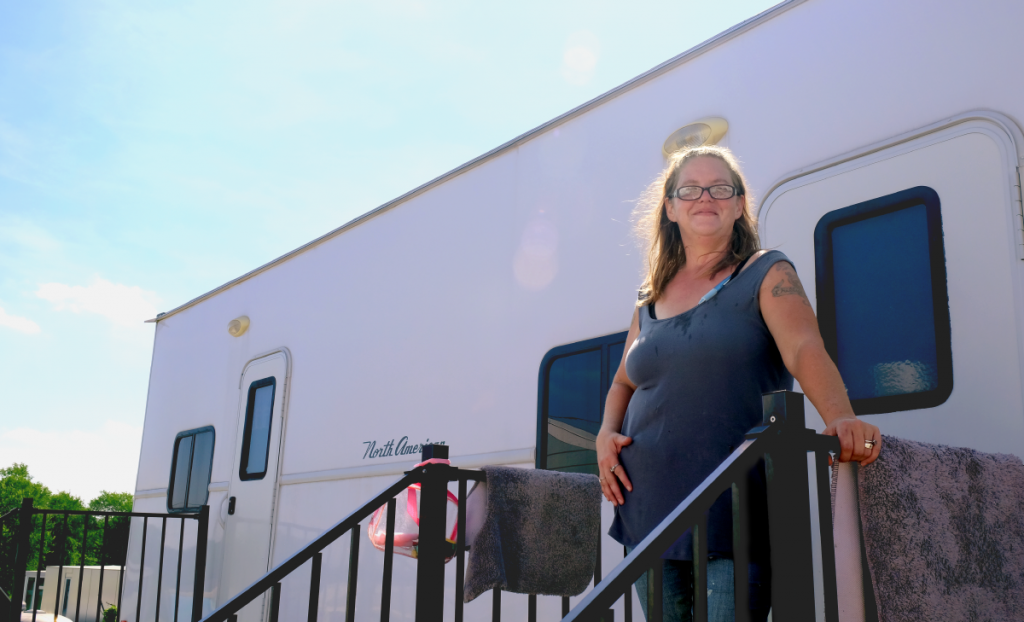
If you would like to support the work of Leatha and the Community First! Village’s gardens and pastures, consider signing up for a volunteer shift.
If you have ideas to support a more just and sustainable food system in Austin, consider applying for a Food Justice Mini Grant. Grants of up to $3,000 are available to support communities in their efforts to grow, sell, and eat healthy food. Applications are open until July 22, 2022.
To learn more about Austin’s net-zero goal and explore actions you can take to support a greener community, view the Austin Climate Equity Plan.
Share your Net-Zero contributions with us on Twitter or Facebook and use #NetZeroHero. If you know a Net-Zero Hero (or heroes!) who should be recognized for their efforts, send your nomination to sustainability@austintexas.gov.



